Empowering Women: Agriculture, Education, Entrepreneurship Fall 2023 Report
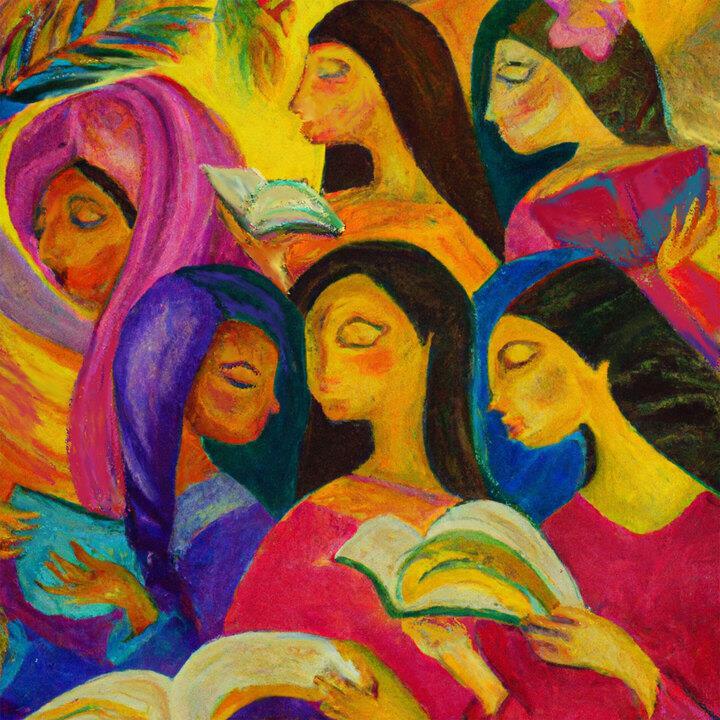
What Is Our Opportunity?
-United Nations
THE NEED
Gender inequality denies women their voices and devalues their work. From a mother living in one room with dirt floors who is struggling to feed her family to a professional woman yearning to be respected at financial or educational institutions in Africa, women fight global gender inequality. Especially for women living in poverty, gender inequality is yet another challenge in a long list of obstacles to achieving independence and sustainable livelihoods.
Agriculture, poverty, and women: Three out of four people living in extreme poverty in Africa are farmers, surviving on one or two meals a day. In sub-Saharan Africa, women account for half or more of the agricultural labor force but are less likely to own the land or have decision-making power to improve their income and feed their children.
► Women farmers can reduce hunger: If women had the same access to productive resources as men, their increased yields would raise total agricultural output in developing countries by up to 4%, which would reduce the number of people living in hunger in the world by 100-150 million1
► Women farmers can improve livelihoods for children: When women are seen as incomeearners and have more influence over economic decisions, their families allocate more income to food, health, education, children’s clothing, and children’s nutrition2 .
► Women farmers can lift millions out of poverty: Improving gender equality is strongly tied to higher income per capita and faster economic growth within countries. When more women have access to equal economic opportunities, they can lift themselves, their children, and their neighbors out of poverty3
1 FAO, 2011. The State of Food and Agriculture: Women in Agriculture. http://www.fao.org/3/a-i2050e.pdf
2 Ibid
3 World Economic Forum, 2017. Women’s economic empowerment is the smart thing to do. What's stopping us?
https://www.weforum.org/agenda/2017/01/womens-economic-empowerment-is-the-smart-and-right-thing-to-do-whats-stopping-us/
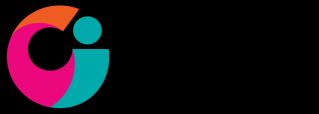
“When rural women have access to resources, services, and economic opportunities, they become a driving force to end hunger, malnutrition, and rural poverty.”
Education, poverty, and women: Gender bias is often a barrier to quality, engaging, inclusive education. Today, a girl born in Uganda is four times more likely to have her first child than a high school diploma before reaching adulthood. For her, the future is not full of hope, but of worry and uncertainty. Around her, she’ll see families struggle to make ends meet, and the few schools she could attend will not be equipped to teach her. Research tells us that giving a child in a low-income country the opportunity to get a good education will change everything about her future. She will be healthier and live longer; she will have fewer children and later in life; she will gain more decision-making power over who her spouse is, and her role in her household. Additionally, she will earn more income to provide for her future children, who will be healthier, more educated, and more likely to succeed in life. The outcomes are evident:
► Equitable, inclusive education reduces poverty.
► Equitable, inclusive education unlocks potential.
► Equitable, inclusive education transforms lives.

THE SOLUTIONS
Increasing women’s economic, educational, and social equality and empowerment lifts families and entire communities out of extreme poverty.
For more than fifty years, Opportunity International has focused on reaching the unreachable, enabling people living in extreme poverty to have access to training, financial resources, and group support that paves the way to a life of dignity and purpose. Our interventions increase incomes, create and sustain jobs, and provide affordable quality education for children and youth. In each of our work streams agriculture, education, microbanking, and digital financial services gender equality and social inclusion are woven into the work with intention and cultural sensitivity.
Agriculture Finance: Women Farmers are Key
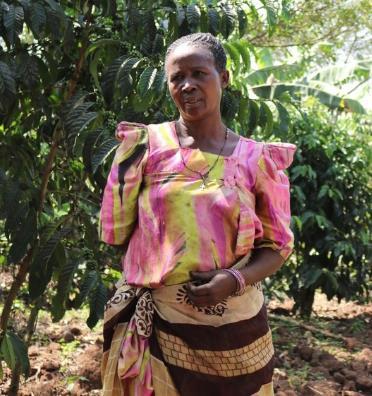
Agriculture Finance is tackling gender inequality with a compelling and fiscally sound argument: women clients are worth the investment. By influencing and helping financial institution partners to better understand and meet the demand of their female clients, AgFinance reduces the risk and enhances the business case to finance smallholders, especially women, further contributing to the sustainability and expansion of inclusive financial services in Africa
Training has always been fundamental to the success of Opportunity’s AgFin work; going forward, AgFinance is building a gender lens for all financial service partners. We have rolled out a new, standard, required training that Farmer Support Agents share with their farmers and farmers’ families: Farming as a Family Business increases awareness of existing gender norms within their communities, and the impact that these norms have on household dynamics. Internally, AgFin will apply a gender lens to policies, job descriptions, and hiring practices.
Education Finance: Accessible, Quality Education for All Gender equality and social inclusion have been identified as priority opportunities:
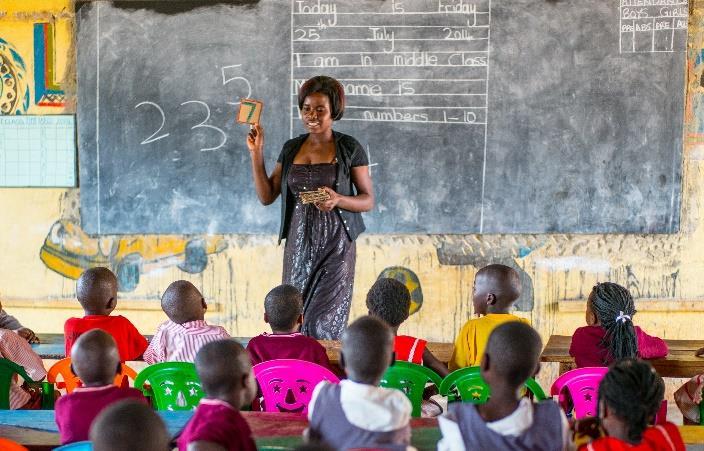
► We are focused on creating equal access to quality education for all children regardless of their gender. This means gender parity enrollment equal girls and boys across all levels of school from pre-primary through secondary.
► We want to equip teachers with awareness of how unconscious gender bias can impact learning, and effective skills to engage all learners in their classroom. Teachers that understand how gender can impact whether a girl is confident to answer a question and risk getting it wrong can better engage learners with prompts and encouragement to participate in class. Equal access to quality education means girls are encouraged by teachers to achieve in mathematics class; it means boys are not disciplined more harshly; it means girls are given equal leadership roles at school.
► As critical as supporting learners, we will empower female school owners to achieve more for themselves and their school communities by mobilizing more access to capital and development opportunities. Female school owners are often aware of the needs of girls and more vulnerable students. With more access to capital, they can invest in critical infrastructure such as gender-separated washrooms and buses that reduce risks of walking to school.
► Greater gender equality also impacts hiring practices: school leaders aware of unconscious gender bias in recruitment can shift away from common hiring practices that historically have resulted in more female teachers in the lowest paid pre-primary roles and more male teachers in the highest paid secondary roles.
Between 2023-2025, Opportunity International is committed to the integration of full gender mainstreaming across our operations, including the piloting of projects to incentivize financial institution partners to lend to more women school owners:
• Education Finance is rolling out an integrated gender approach within its current programming to the 12 countries in which we currently operate, plus three new countries (India, Dominican Republic, Guatemala).

• Education Finance Technical Assistance team is working to implement pilots with two financial institution partners to test approaches to shifting their lending to increase access to loans for women school owners.
Esther, School Proprietor, Uganda
Esther and her husband Joseph founded the Bright Community School, welcoming 80 children into their first kindergarten in 1998. Since then, Esther and Joseph have partnered with Opportunity International to build new classrooms, a kitchen where they prepare nutritious food each day, and dormitories enabling even more students to get a good education. Now, Esther and Joseph educate 820 incredible students and are transforming not only their family, but their entire community.
Microbanking
Women Entrepreneurs (Colombia, Nigeria, DRC, Ghana, Uganda, India, Indonesia)
Building on our learnings from the SheTrades initiative in Uganda and in partnership with UPS, we are expanding our work with women in Colombia, Nigeria, India, and Indonesia We will reach more women in this high-potential group of entrepreneurs, providing them with appropriate and affordable financial services and market linkages to grow their businesses. Concurrently, Opportunity will empower women entrepreneurs by delivering tailored coaching sessions, improving the business’ ability to achieve sustainable growth. Increasing women’s incomes allows a family to support children’s education and care for the family’s health and welfare creating more resilient families and communities
Opportunity currently reaches a high percentage of female clients in India and Asia; Africa is more challenging due to many factors geographic, political, economic. With focused resources and efforts, by 2025, we project that 65% of our microbanking clients in Africa will be women.
Digital Financial Services

Women’s Savings Groups (Africa and Latin America)
Opportunity’s unique “high-touch, high-tech, high impact” work is shaped by our clients’ specific needs. Our team partners with organizations like financial institutions and financial technology businesses (“fintechs”) that provide financial services to people living in poverty. Between now and 2025, we will use digital tools to reduce the cost of savings groups; digitization will allow the scaling and reach of women’s savings groups to cost-effectively reach women living in extreme poverty. By 2025, our goal is to digitize 6,000 savings groups.
Female Banking Agents (India)
In India, Business Correspondents (BCs; also known as Banking Agents) are government certified, community-based agents who offer convenient and culturally appropriate bank services leveraging digital platforms. Agents operate in rural communities and are trained and supported by financial institutions to accept cash deposits and withdrawals on behalf of the bank. This solution is penetrating rural areas, but the majority of BCs are men, and the system reaches more men than women.
Twenewaa Esther lives in southern Ghana. To help her husband support their five children, Twenewaa sells produce and other food items from a stall constructed in front of her house. She realized that if she didn’t find funding to keep her inventory well stocked, the business would never make a profit.

Thanks to Opportunity International, Twenewaa received financial training and a loan to invest in her business. She used the loan to purchase large quantities of fruits and vegetables to sell, and she was able to buy a variety of other food items. Her sales increased, and Twenewaa’s stall made enough profit to restock her inventory on a regular basis. Now that the business is providing a stable income, Twenewaa can provide for her children and improve her family’s standard of living.
Opportunity is proposing a dramatic expansion of the banking agent initiative to empower an additional 2,000 female banking correspondent agents. The expansion will capture learnings on delivering at scale, follow business development for newly trained agents, analyze the characteristics of good agents and apprentices, how family support can be promoted, and the business case for female agents. By 2025, we estimate the number of people reached annually via these BC agents in India in 2025 will be 10 million people, with at least 45-55% of customers expected to be women.
Women’s Health and Safety Health (India, Indonesia, Bangladesh)
For millions living in poverty, healthcare is unaffordable and inaccessible, especially for those in rural and remote areas. Women face further challenges in accessing crucial healthcare. Health issues in the family are one of the most cited causes of drop-out or default of repayments by families taking out microfinance loans highlighting the impact of health expenses on families trying to work their way out of poverty.
Our goal is to improve the overall health of families and communities living in poverty by providing education and access to much-needed health products and services:
• Health Leaders: Empowers women in their communities to deliver basic health education, with a focus on illness prevention and health promotion. The program operates in India, Indonesia, and Bangladesh; in 2023, we project training and equipment an additional 1,000 Health Leaders.
• Health Entrepreneurs: Supports Health Leaders to develop sustainable businesses by delivery essential health products and services, including menstrual pads, basic medications, and micro-insurance to communities in India and Bangladesh. In 2023 we will support existing Health Entrepreneurs and train an additional 300 Health Entrepreneurs.
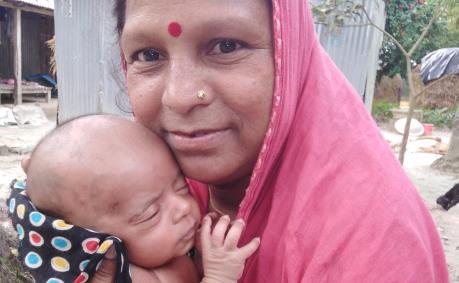
Positive Results
Communities educated by Health Leaders experience better long-term health of mothers and children:
► 25% increase in health knowledge, attitudes, and practices

► 50% increase in menstrual and reproductive health knowledge
► 38% increase in maternal health knowledge
► 33% increase in health knowledge among the least literate
• Health Finance: Helps financial institutions develop health-related digital financial services and products specifically for people living in poverty. These include health mutual funds, insurance, loans, or savings giving those usually excluded access to finance and support to grow their business. We are expanding this work in India.
Women’s Safety (India, Indonesia, Bangladesh)
Gender-based violence has a particularly devastating impact on women living in poverty. Women living in developing countries, particularly in rural and remote areas, often have less access to support services due to entrenched cultural biases, discrimination, and low awareness of their rights.
Our PeaceMaker Program trains local women to counsel and empower women, men, and communities to protect their futures and break the cycle of abuse through rights-based education, awareness, and challenging entrenched social norms. We support women to leave abusive situations and provide counseling for survivors.
Our Safe Village Program tackles trafficking and child marriage. We provide grassroots training in highrisk villages, empowering communities to prevent and respond to trafficking. We train “guardian girls” and “informed mothers” as agents of change and “good fathers” and “smart boys” are encouraged to protect women and girls in their community, working together to ensure children grow up with the best chance of completing their education, and achieving their potential.
What Is Your Opportunity?
Opportunity International’s guiding principle for over 50 years has been to find out who isn’t included, and why, and find a solution. Mainstreaming gender equality into every aspect of our work agriculture, education, microbanking, and digital financial services empowers women to have access to financial inclusion, business and livelihood training, quality education for their children, safe living spaces, and more independence. Helping to lift women out of extreme poverty with economic and personal resources like self-confidence and conflict resolution not only impacts their family but creates a positive trajectory that will impact generations to come.
Opportunity Clients: Women Empowering Women

Opportunity International deploys digital financial services to address the economic needs of women living in poverty, enabling them to buffer against income shocks, support financial goals, and make investments in their businesses and families.
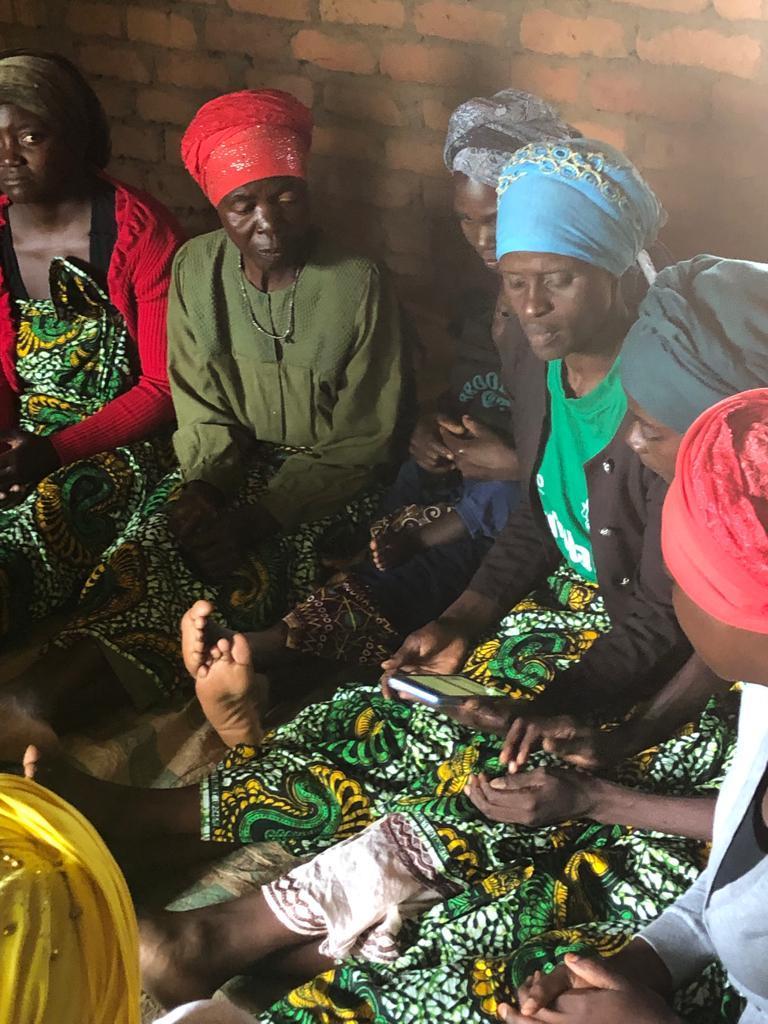
Savings Groups are associations of self-selected individuals who come together to pool funds as savings to loan among themselves with an interest rate, especially in places where formal financial services are limited or out of reach. Digitizing these groups increases efficiency, confidence, and can prepare members for future formal banking.
Opportunity International Inc. is incorporated in the United States of America. Along with Opportunity International Australia, it is part of the broader Opportunity International Network. Opportunity International Australia provides funding to support the Education Finance program in Asia. Opportunity International Australia implements the Health and Women’s Safety programs in Asia. Opportunity International Australia is a majority shareholder of Dia Vikas. Opportunity International Inc. is a minority shareholder of Dia Vikas.
In southern Malawi, a group has moved from the use of paper ledgers to a fully digitized ledger. The group’s treasurer, Twaina Mustafa, became a trainer for another group in a neighboring village that was struggling with acceptance and utilization of the app. The nearby group found it convenient reaching out to a peer especially another woman to help them get the guidance they needed to begin using the app.
For Khumbo Msutu, Opportunity’s Digital Financial Services Project Officer in Malawi, “training women has been so fulfilling because they are so eager to learn, mostly because in the normal setting it is the men that are on the forefront of technological trends. This interest in learning has resulted in positive results as they are fast learners and understand the content very fast.”
Opportunity International Australia provides funding to support the Education Finance program in Asia. Opportunity International Australia implements the Health and Women’s Safety programs in Asia, which are supported by the Australian Government through the Australian NGO Cooperation Program (ANCP). Opportunity International Australia is a majority shareholder of Dia Vikas. Opportunity International Inc. is a minority shareholder of Dia Vikas.
Thank you for walking alongside our sisters as they create sustainable livelihoods for themselves and their children.
